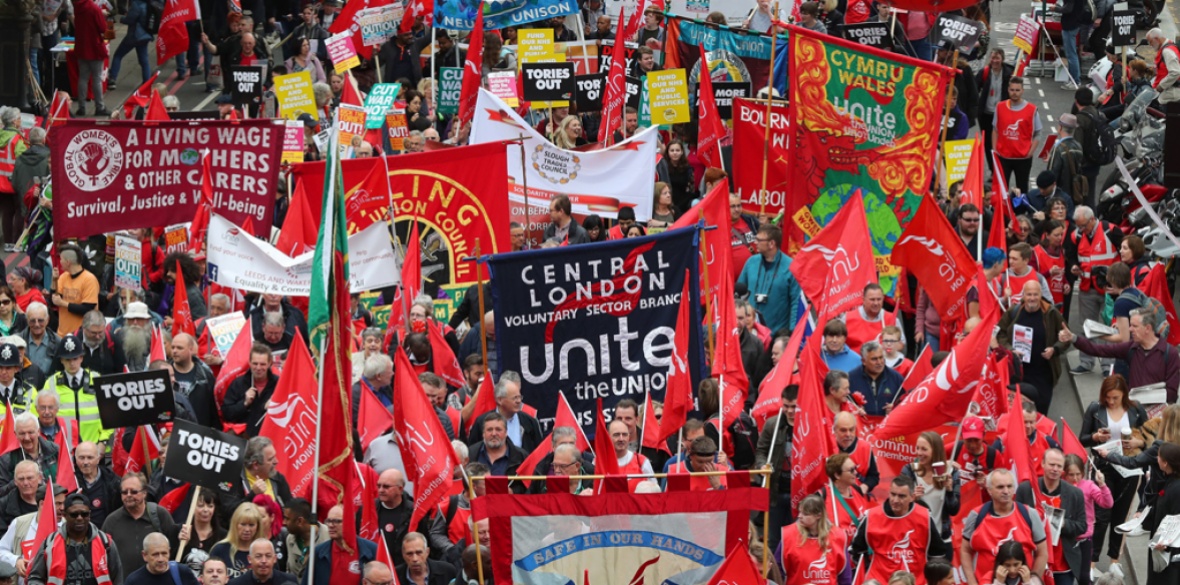This is the last article you can read this month
You can read more article this month
You can read more articles this month
Sorry your limit is up for this month
Reset on:
Please help support the Morning Star by subscribing here
AS OUR movement dwells on the sacrifices of the Tolpuddle Martyrs, pioneers who suffered prison and deportation for organising a trade union, we should look at how to build on their legacy today.
The martyrs’ “crime” was solidarity — the agreement not to work for less than 10 shillings a week marking the determination of agricultural workers not to let bosses set them against each other by undercutting each other’s wages.
And they were freed by solidarity: the huge campaign that saw 800,000 signatures presented to Parliament demanding their release, that organised one of Britain’s first political marches and which forced the government to pardon them.
The Combination Acts, which banned trade unions, had already been repealed when the martyrs were arrested — which is why they were sentenced instead on the pretext of having sworn an “unlawful oath.”
We see the same flexibility on the part of Britain’s rulers today.
Trade unions might be legal, but employers and the government will use every trick in the book to stop workers from organising effectively.
That works through draconian bans on industrial action in certain sectors.
The restrictions that see prison officers barred from striking despite staffing cuts and outsourcing having placed them in very real danger would be extended to other workers in a flash if the Conservatives could get away with it — this is the logical follow-up to the provisions of 2016’s Trade Union Act placing especially severe balloting hurdles before strikes that might affect “important services.”
It also operates in the bans on solidarity action such as secondary picketing and in the rules against “political” strikes.
Why should we allow the government to define legitimate and illegitimate reasons for a worker to withdraw their labour?
Our movement has always been political, as the deportation of the martyrs proves. The very act of coming together to bargain collectively is a challenge to the power of the boss.
That’s why the power of the state has repeatedly been used against organised workers.
It’s taken every form from arrest and prosecution (the Shrewsbury pickets), to unprovoked assault (the police riot at Orgreave), to secret service infiltration and collaboration with blacklisting as practised by the Consulting Association, to conniving with employers to attack their staff as Department for Transport civil servant Peter Wilkinson did when bragging about “breaking” trade unionists in the rail industry.
And workers have long understood that the current economic and political order is constructed to keep us in our place — hence the trade union movement founded the Labour Party in order to change that.
Thanks to Jeremy Corbyn’s election as Labour leader in 2015, we now have a party prepared to do that — and it is significant that the Manifesto for Labour Law produced by the Institute of Employment Rights, which sets out a legislative programme for labour reform endorsed by the party leadership, sees unshackling the unions as a key part of that.
This is no time to sit back and wait for Labour to legislate on our behalf. The endless squabbling at Westminster shows that the left leadership face betrayal and backstabbing at every turn from some of the party’s MPs.
Great festivals of our movement such as Tolpuddle should see us thrash out what we can achieve directly, through mass mobilisation, community organisation and industrial action.
There is huge hunger for change across Britain, and the scale of demonstrations like that against Donald Trump a week ago show popular willingness to take to the streets.
Who else but our movement can turn anger into action and win a future for working people?
No other democratic organisations in Britain have the numbers, the organisational experience and the proud socialist principles of the trade union movement.
We should use those to get Corbyn into Downing Street — and to reshape our country at every level in the process.












